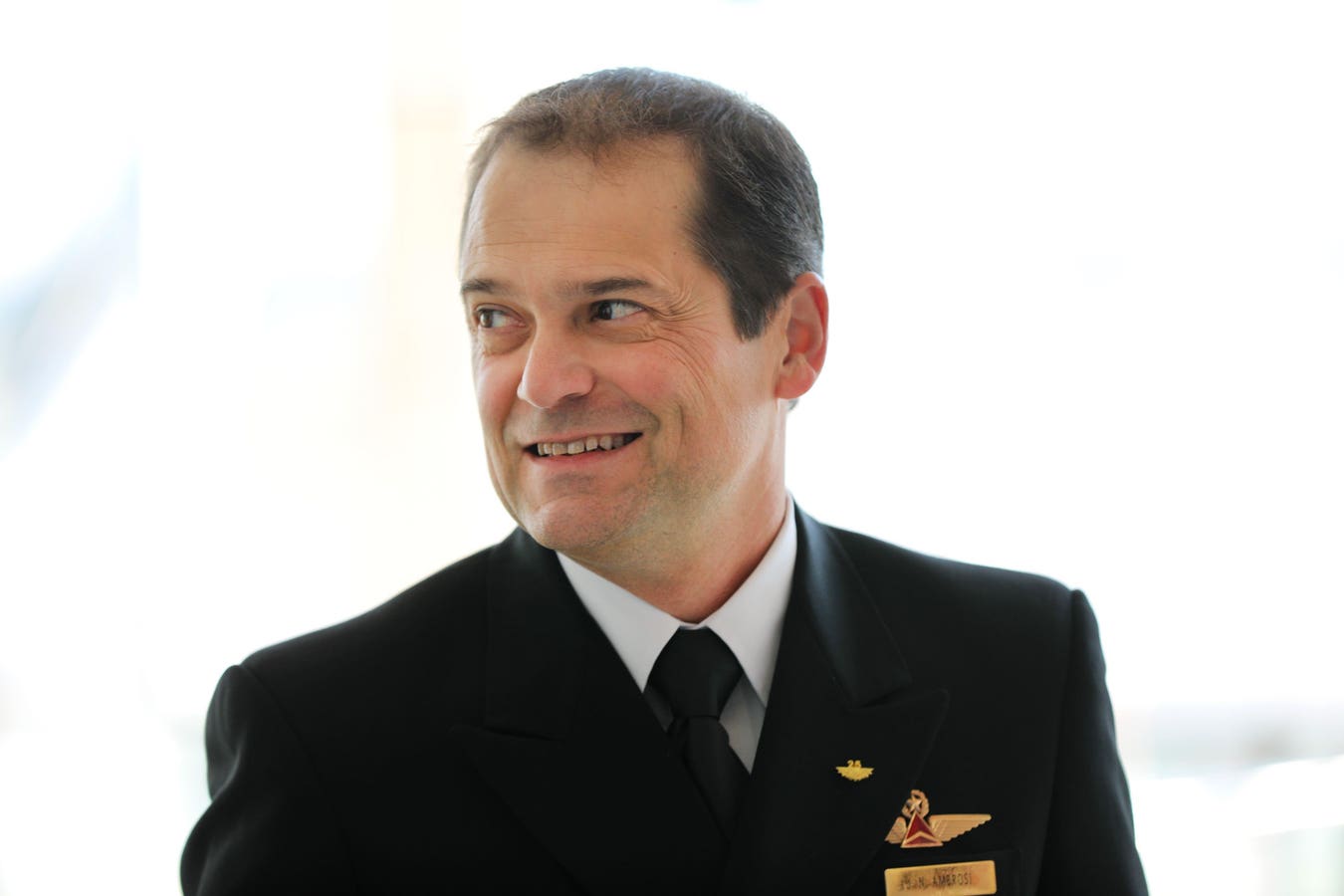Last month the Air Line Pilots Association came out ahead on FAA reauthorization, largely achieving its goals for the five-year funding bill. Now ALPA, led by an activist president, is focused on opposing an effort to incrementally reduce the number of pilots in the flight deck to one from two.
That effort is being led by Airbus, now the world’s dominant aircraft manufacturer given Boeing’s decline. With prompting by Airbus, the European Union Aviation Safety Agency, the European equivalent of the Federal Aviation Administration, is apparently moving towards endorsing the reduction.
ALPA President Jason Ambrosi confronted single pilot flight deck creep on Tuesday in a speech to the International Aviation Club of Washington. ALPA represents 78,000 pilots at 41 U.S. and Canadian airlines.
Ambrosi referred to recent near mishaps, including a February 2023 incident in Austin, Texas, when two FedEx pilots, seeking to land in heavy fog, averted a collision with a Southwest aircraft that was taking off. The two pilots worked together: With the FedEx Boeing 767 about 150 feet above the ground, the first officer made a quick decision to abort the landing after seeing how close the Southwest Boeing 737 was.
“Some manufacturers and foreign airlines are actually working to design flight decks that replace the very safety features that averted these disasters,” Ambrosi said in his speech. “They plan to replace pilots with automation.
“Of course that’s insane,” Ambrosi said.
“I have thousands of hours over the North Atlantic and can tell you with no uncertainty that in the middle of the night in cruise, having only one pilot is a significant degradation in safety,” he said. “Imagine an emergency like an engine fire, security event or incapacitation of the remaining pilot.”
“In practice, reduced-crew and single-pilot operation schemes, like Airbus’s so-called extended Minimum Crew Operations (eMCO), are a gamble with safety—and a gamble with people’s lives,” Ambrosi said.
He said EASA is working with Airbus to develop criteria for the development of various reduced-crew operation protocols such as extended minimum crew operations and single-pilot operations on specific aircraft.
“To prevent this risk to safety from reaching our country, we must work together with aviation regulators and stakeholders to discourage it across the globe,” Ambrosi said. “We cannot allow foreign regulators to grease the skids for their manufacturers, trying to force our hand to undermine safety in our country.”
Ambrosi has said previously that the term “eMCO” for ”extended minimum crew operations” is intended to obfuscate by not including the words “single pilot.” For the moment, Airbus advocates the use of eMCO during “cruise phase,” generally on long over-water flights.
Airbus spokeswoman MaryAnne Greczyn said Saturday, “Airbus is in constant dialogue with our customers and the authorities to pioneer new solutions to safely support flight crews and aircraft operations.
“We believe that pilots will remain at the heart of aircraft operations and that technology opportunities can play a crucial role by assisting them in the cockpit and reducing workload as we work together to deliver increased levels of safety,” she said.
Christian Scherer took over as CEO of Airbus’ commercial aircraft business in January. In February, he discussed single pilot flight decks in a story in The Sunday Times of London.
“Technologically, it is feasible,” Scherer said. “And bear in mind if you go to a one-man cockpit, you might as well go to a zero-man cockpit. Because it all needs to cater for the eventuality that this one guy just ate a bad oyster and is incapacitated and the aeroplane has to take over. So one pilot or zero pilot is effectively the same thing.”
The Sunday Times story began, “Airbus’s Christian Scherer has trailblazing in his blood,” and went on to say that, “So it is perhaps unsurprising that the 61-year-old German believes commercial flights can operate with a single pilot as the industry looks to cut costs and increase safety through greater automation.”
Scherer seems firmly committed. “Whether it is one pilot or zero pilots, the technology has ‘kind of proven its case,’ he added. ‘It’s a big onion to be peeled,’” the newspaper story said. As for pilots, Scherer envisioned a conceptual change in their role.
“Any progress that you introduce in this field has to first and foremost introduce the demonstration of greater reliability and safety,” he said. The climate could improve “if we can demonstrate it’s going in the right direction, in terms of safety [and] reliability. And potentially even an enriching role of the pilot, who could become more of a mission manager as opposed to a driver, those kinds of things, they all converge.”
Peter Goeltz, a longtime lobbyist on aviation issues, said that in the battle over FAA reauthorization, ALPA preserved rigorous pilot training standards and also fought off an effort to raise the pilot retirement age. Single pilot cockpit “is the next big issue,” he said. “It will increasingly become focused on the cargo field, on the effort to replace two pilots in transoceanic cargo.”
Read the full article here





